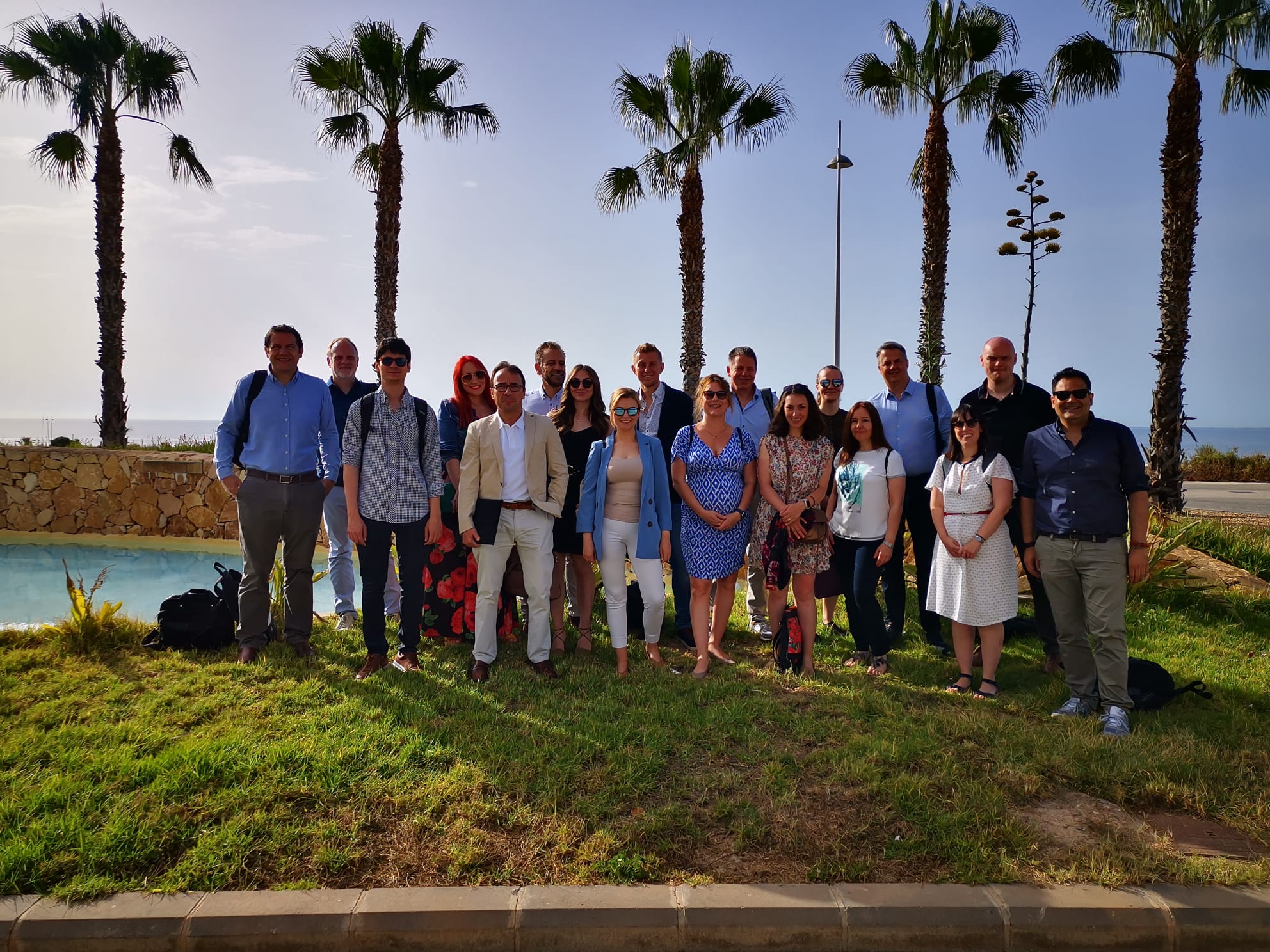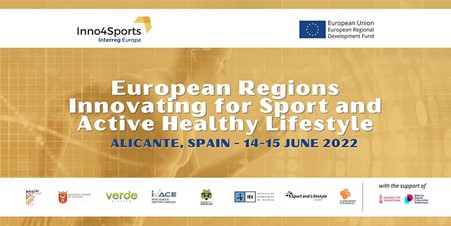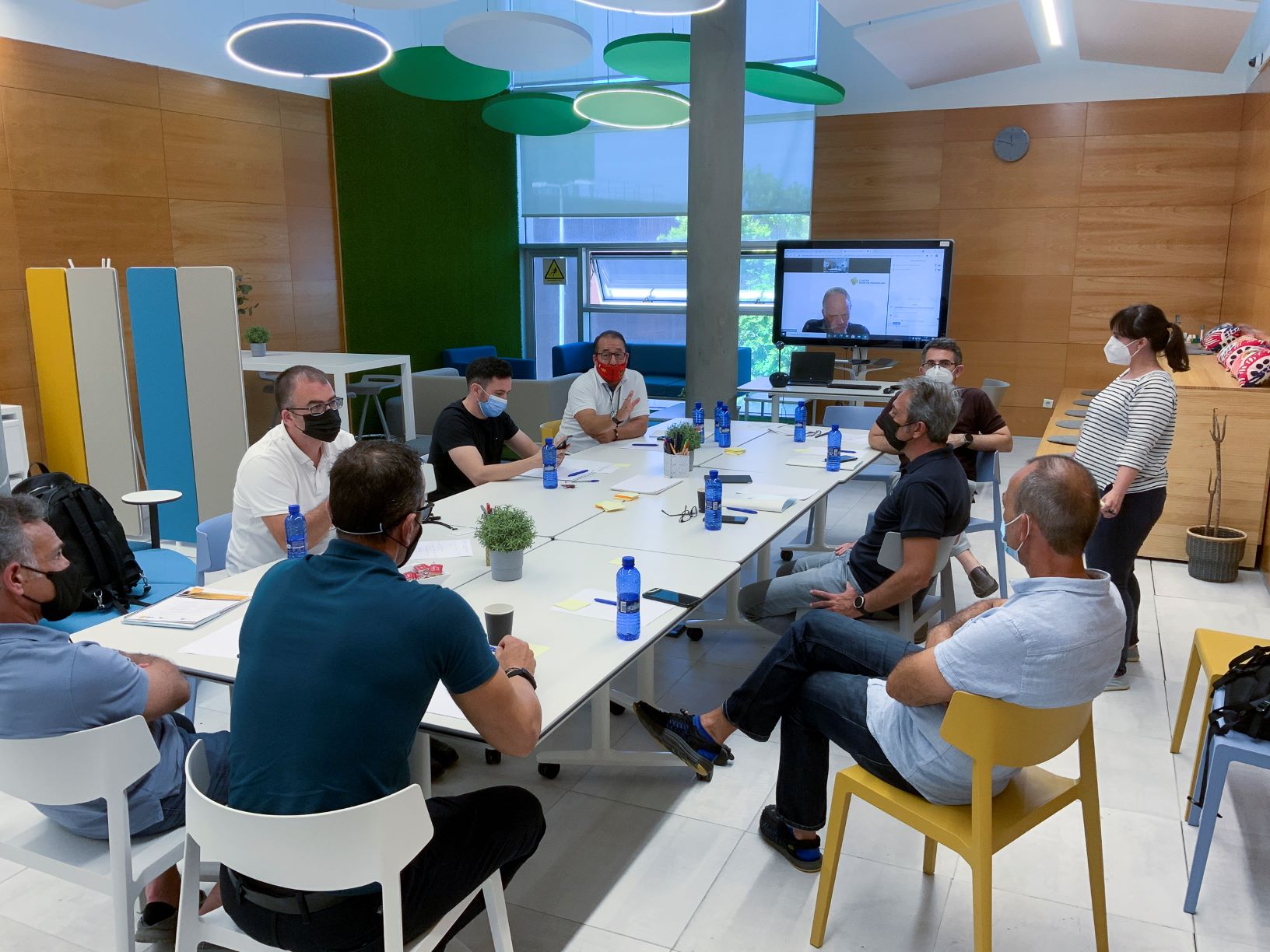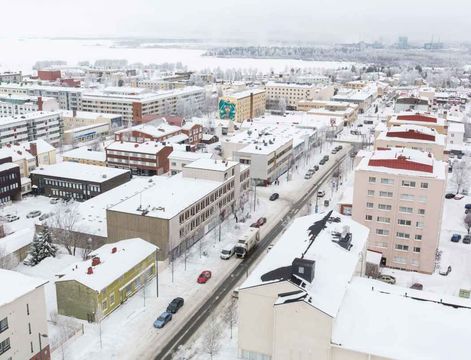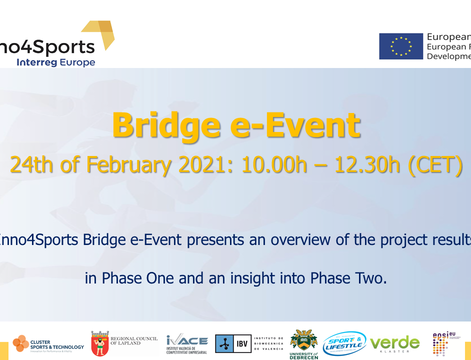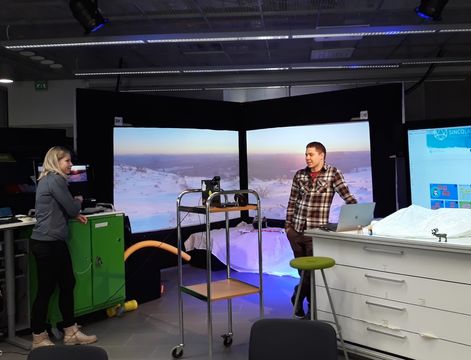The objective of the First Phase of the Inno4Sports project (from mid 2018 until end of 2020) is to develop a clear picture of the excellences of all 5 regions involved and, with the inspiration coming from this, to develop a Regional Action Plan for each individual region. In order to reach this goal, the partners from the 5 regions organised various (physical and digital) Staff Exchange Weeks, Knowledge Capitalisation Seminars, Steering Group Meetings and Interregional Events (IE). Each region developed action plans to embed innovation for sports & vitality more in their regional policy. Valencia (Spain), Southern-Netherlands, Lodz (Poland), Debrecen (Hungary) and Lapland (Finland) are participating in this Inno4Sport project.
In the Second Phase of the project (2021-2022) each region will implement the action plan that they developed in phase 1 (2018-2020). Some of the actions in these action plans are based on or inspired by best practices learned from another region. However, in order to successful transfer the best practice from one region to others adaptation and testing is sometimes necessary. Pilot actions are an useful instrument to facilitate adaptation and testing actions. A pilot action is defined as a project of limited scale and duration to convert a good experience from one region to one (or more) other region(s). In the Inno4sport project we defined one pilot action called: ‘data driven innovation of products and services’. We will submit this pilot action by the end of November for review by the Interreg Europe Program. Only partners for whom the pilot action is relevant participate, in this case Valencia, Lapland and South-Netherlands.
Inspiration for the pilot action
The visit of Lapland and Valencia to South Netherlands (Eindhoven) was the source of inspiration for the pilot action ‘data driven innovation of products and services’. In Eindhoven during a presentation about the Vitality Living Lab (VLL)-project Lapland and Valencia learned about the South Netherlands methodology on the use of sport data for the development of sport products and services. The VLL project showed especially that sports-data-driven innovation has a huge potential for socioeconomic development. The VLL project applies procedures and methods for using physical activity data for identifying, developing, testing and launching new products and services. Also other examples were presented of how data generated by people (public and more personal) can be applied for designing the city. The presentations gave insight and proved the added value of this data-based approach.
Lapland also learned a lot from the VLL project and the ‘golden triangle’ collaboration of South-Netherlands. The ‘golden triangle’ is the principle that research institutes, end-users and businesses collaborate to generate innovation in a way that benefits everyone involved in the process. Lapland is especially interested to discover the possibilities of the data driven innovation concept in developing services and education. By implementing the good practices of Eindhoven, the long-term plan is to create a living lab facility for the use of variety of actors (incl. businesses & research organisations) where the data service concept could be applied to RDI activities, business creation and education.
All 3 regions (South Netherlands, Lapland and Valencia) share the ambition to create regional smart innovation hubs and they see data as an essential factor in these hubs both Valencia and Lapland therefore wish to enter into data driven innovation learnt from the South-Netherlands. In particular they want to explore how this approach can help the development of a smart innovation hub in each of the regions, which is part of the regional action plans. A pilot action is needed to assess to what extent this data approach influences and supports the development of smart innovation hub.
The Pilot Action
The pilot action is needed to define the regional approach on data driven innovation and to assess the impact on the innovation process within the innovation hubs. In this pilot action:
- South-Netherlands provides the baseline methodological umbrella, context and support for adapting the Lessons learnt from the VLL project to the pilot.
- Valencia will import and adapt the methodology to data driven innovation by exploring personal digital data to collect innovation ideas and potentially other benefits.
- Lapland will explore the potential to build up a testing lab for companies and university to develop new services in the arctic sport network.
A successful pilot will help the regions to better embed the further development of the Innovation Hub for Sport and Vitality in their regional policy. Therefore, we hope that the pilot action will be launched soon. If so, we will be sharing our plan for the pilot action more extensively with you, so stay tuned!


